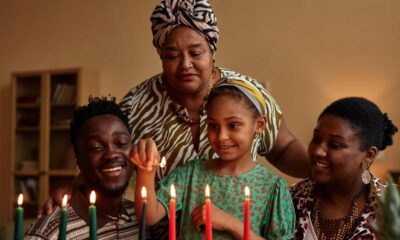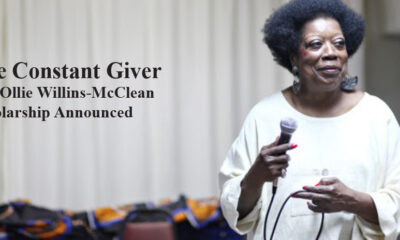Arts-Theater
Black Films in New York City: A Couple's Journey
By Lara Louise Telson
Eighteen years ago, two young intellectuals set off to accomplish a nearly impossible task: create an international film festival in New York City about the black experience. In 1993, the African Diaspora International Film Festival (ADIFF) presented 24 films at the Cinema Village in Greenwich Village; today, ADIFF is 102 films in five different locations in Manhattan.
For the past 18 years, ADIFF has showcased thought provoking and engaging films from around the world. The Festival co-directors, Reinaldo Barroso-Spech and Diarah N’Daw-Spech, strive year in and year out to redesign the Black cinema experience and strengthen the role of Afrocentric cinema with audiences and critics alike. “ADIFF was empowering the first year,” says N’Daw-Spech. “That is the year we screened Sankofa. We knew no one. We did not know much about which films New Yorkers liked, and we chose that film because we thought it was powerful. ADIFF was a huge success!”
The Festival is a venue for talented unknowns and established filmmakers to showcase their work. Tonight, December 9, the festival will host a fundraiser for celebrated African American filmmaker, William Greaves, at the Schomburg Center for Research in Black Culture in Harlem. The Emmy award winning director, who is also a friend of the couple, is currently working on a documentary: “Once Upon a Time in Harlem” which explores the artistic life of Harlem. “This work is of great resonance in the context of African American culture in particular and American culture in general,” explains Dr. Barroso-Spech. Confirmed speakers for this event include poet Amiri Baraka, producer Pearl Bowser, actress Ruby Dee, filmmaker/publisher David Greaves and film editor Sam Pollard.
ADIFF runs from November 26 through December 14. Highlights of this last week include “Scheherazade: Tell me a Story” and “Josephine Baker: Black Diva in a White Man’s World.” Both works portray strong women who defy personal and societal pressures to achieve change. “The Festival can serve as a great place for redefining ones’ humanity as many of the films present individuals facing difficulties, overcoming them and sharing their experiences in a way that gives hope for the future,” explains N’Daw-Spech. “The audience has always been grateful and impressed with our films. When we achieve that response, we achieve success.”
Lara Louise Telson is the Mass Media Coordinator for ADIFF. For information on ADIFF, visit the Festival website at www.nyadiff.com. Mark your calendars for the first African Diaspora Cine Club of 2011, February 25 at 6 PM at Teachers College, Columbia University.













